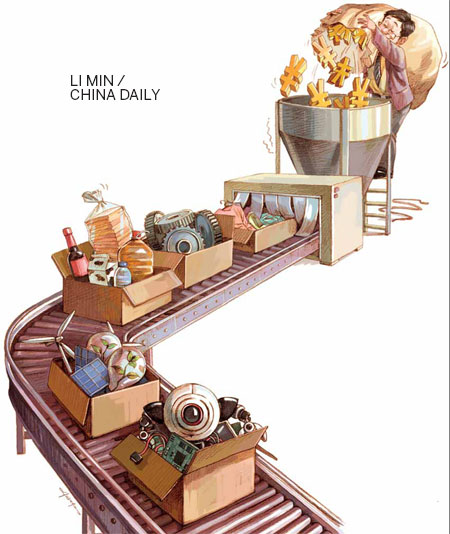Riding the big wave
Updated: 2012-09-21 13:31
By Cecily Liu (China Daily)
|
|||||||||||
Driving force
Like Bright Food, many Chinese companies are seeing their European target companies' sales channels as a key asset to aid their globalization process.
One such example is Shenzhen-based medical equipment maker Mindray, which acquired the French subsidiary of the US-based patient monitoring business Datascope in 2008.
Combining Datascope's existing sales channels and sales workforce with continued investment into new product development, Mindray doubled sales revenue to 10 million euros ($13 million) a year four years after the acquisition.
"We have a strong innovation team in Europe, which introduces about eight new products every year," says Qian Yun, marketing manager of Mindray's French subsidiary.
"One of our advantages is that our products cost 30 to 40 percent less than mainstream alternatives in the European markets. At the same time we can also ensure the quality of the products and customer services," he says.
As newcomers to mature markets, many Chinese companies have chosen to work in partnership with Western companies, thereby allowing themselves time to understand a new market.
China Telecom Europe, which specializes in developing low latency terrestrial cables through Russia to connect Europe with China, is a typical example of the partnership route.
With its competitive edge CTE was able to tie up with many leading European telecom companies like British Telecom, Telecom Italia and Telefonica to provide customers with fast and reliable information flow between Europe and China.
"We look for niche opportunities in the market and try to differentiate our services," Ou Yan, managing director of CTE, says.
|
||||
CTE's SIM card provides round-the-clock Chinese and English language customer services, as well as information on transport routes and tourism services.
"We aren't going to start a price war as international phone calls are already very cheap. We hope to provide a targeted service that makes life convenient for customers," Ou says.
His rationale for working in partnership with European companies is shared by many other Chinese companies which acquire minority interests in European businesses.
Fosun International, one of the largest privately owned conglomerates in China, acquired a 9.5 percent equity stake in the Greek luxury brand Folli Follie Group last year and a 7.1 percent equity stake in the French luxury resort operator Club Med in June 2010.
Fosun subsequently used its own resources and expertise to help both brands strengthen their presence in the Chinese market.
According to Parr, many European businesses want Chinese partners to acquire minority stakes, as it would help them access the Chinese market easily.
"The relationship is mutually beneficial. For European companies, they want to find the right partner, and the same applies the other way around. Most of the Chinese companies are already major suppliers in Europe. Investing in a European business gets them closer to their end customers," he says.
Today's Top News
Rescuers race against time for quake victims
Telecom workers restore links
Coal mine blast kills 18 in Jilin
Intl scholarship puts China on the map
More bird flu patients discharged
Gold loses sheen, but still a safe bet
US 'turns blind eye to human rights'
Telecom workers restore links
Hot Topics
Lunar probe , China growth forecasts, Emission rules get tougher, China seen through 'colored lens', International board,
Editor's Picks

|

|

|

|

|

|











